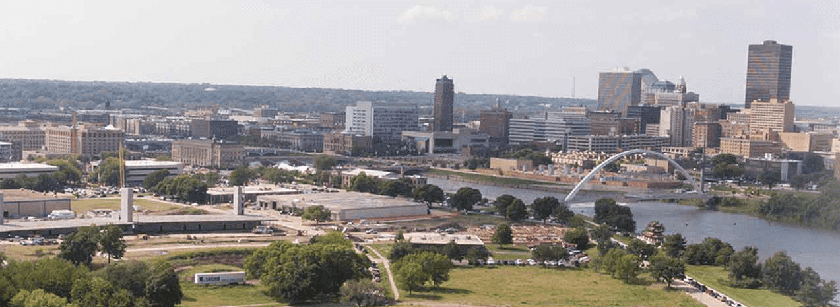DSM Zoning Code with Eli Spevak

As affordable housing options continue to be scarce in many major metropolitan areas, cities are looking for ways to provide more available housing stock. One potential solution that is starting to gain traction is allowing the construction of accessory dwelling units in established neighborhoods within the community. Accessory Dwelling Units (ADUs) are increasingly being utilized to help maximize space in residential districts.
The Benefits of an ADUs
ADUs are expanded housing opportunities that are independent of the primary dwelling unit. They can be attached to an existing home or they can be a separate structure on the property. ADUs are commonly known by a variety of names including laneway houses, granny flats or mother-in law apartments. They are built with fully equipped living quarters which include kitchens and bathrooms. ADUs are typically owned by the property owner of the single-family lot and are either rented out or used to provide additional housing for family members, etc. There are several forms of ADUs including detached new construction, garage conversion, basement conversion and internal. ADUs are petite, discreet and affordable and they offer more options for smaller homes that keep a sense of community.
There are many reasons for cities to consider allowing the development of ADUs in their communities. ADUs create the ability to add density to existing neighborhoods, reduce the demand to expand existing infrastructure and make communities more livable by providing more affordable housing options. They also expand walkability and provide families the ability to stay closer together, especially if an elderly relative is occupying the dwelling.
Adding ADUs in DSM
In order for ADUs to be constructed on an existing residential property, cities must make adjustments to the existing residential zoning code to allow for the additional structures. Several cities and states currently have mandates or initiatives to support ADUs however they are often restricted to certain neighborhoods within the community. The existing zoning code allowing for ADUs may also need to be adjusted in some cases to permit larger and taller structures to maximize the effectiveness of the dwelling.
It is not uncommon for residents in existing neighborhoods and communities to resist zoning changes that allow for the construction of ADUs. This often occurs due to existing examples of ADUs that were poorly constructed by unqualified or inexperienced contractors and a lack of education about benefits ADUs can provide to a community. These challenges can be overcome by making sure residents are provided with good examples of ADUs. Many communities hold open houses in well-constructed ADUs and post rules for their construction online.
In summary, cities can increase density and provide more affordable housing options by allowing ADUs in their communities. It’s important to educate residents on the value and flexibility these dwellings can have and to provide neighborhoods with good examples of existing ADUs so they can better understand how the structures look and function. Cities should also make sure they are transparent with local rules and regulations for constructing ADUs and examine the existing zoning code to identify where they are allowed. Many cities are expanding the zoning code allowing for ADUs to more neighborhoods within their communities as a way to serve more residents by providing flexible and affordable housing options that would not have otherwise existed.
Watch the webinar below:
Named as the #13 Best Place to Live in the U.S. and #7 Best City for Living the American Dream, Greater Des Moines (DSM) is the fastest growing metro in the Midwest. Learn more about what it’s like to live here.
Ryan Carroll
Ryan Carroll is a veteran in the economic development industry with over 15 years of experience. As international trade manager and project manager at the Greater Des Moines Partnership, Ryan is responsible for a variety of roles supporting existing industry business retention/expansion and international trade management. He is currently leading the implementation of the Global DSM strategy created by Greater Des Moines (DSM) business, community, education and government leaders as a part of the Brookings Institution's Global Cities Initiative (GCI). Ryan also leads The Partnership's international educational programming efforts in collaboration with public and private sector partners and serves on the Board of Directors of the International Traders of Iowa to promote trade in DSM.
As Project Manager on the regional economic development team, Ryan supports the growth of existing companies in DSM by providing consultation in site selection, workforce development and state/local incentive accessibility. He also serves as The Partnership's primary contact for freight movement/optimization and is currently engaged in a project that will bring a rail port to DSM.
Prior to joining The Partnership, Ryan worked in the economic development field at both the state and local levels in business recruitment and retention/expansion.